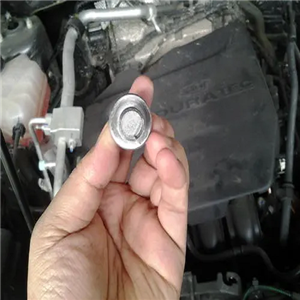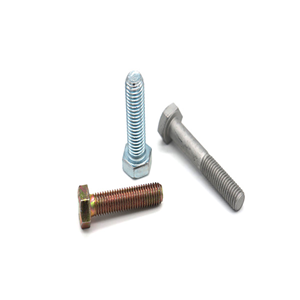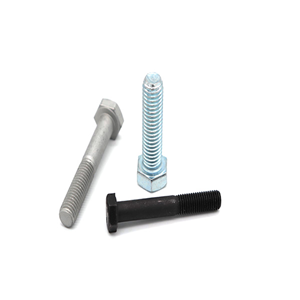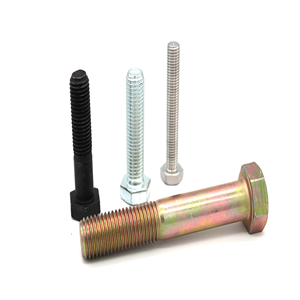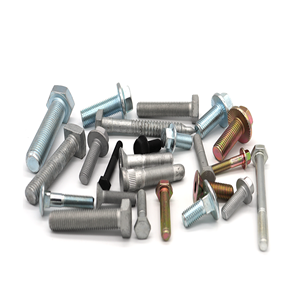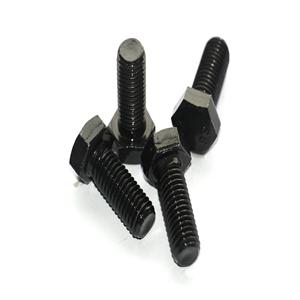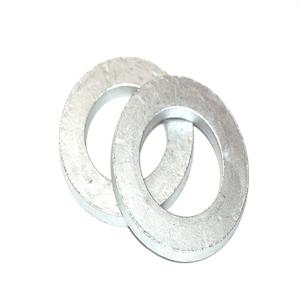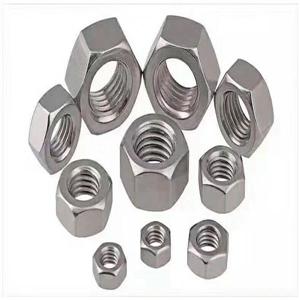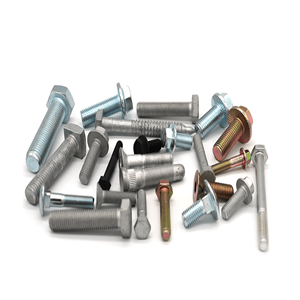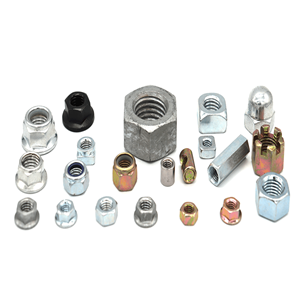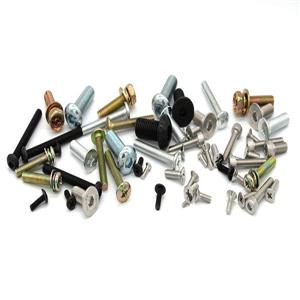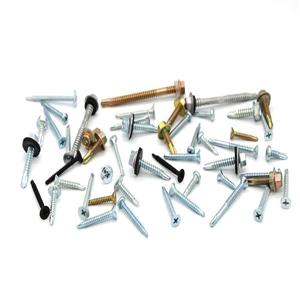-
0207-2021
Analysis of the causes of bolt fracture
1. Due to the material of the bolt, if the material we choose is better, then the quality of our bolt will be better. If we choose poor materials, then our bolts will break to a certain extent. 2. The strength of the bolt is not high enough. If the pressure on the bolt is greater than the strength of the bolt, the bolt will easily break. Therefore, when we use bolts, it is best to know how strong the bolt can withstand, so that we can choose a bolt higher than this strength, and the possibility of bolt breakage will be much reduced. 3. As a result of unqualified manufacturing, many bolts will be produced unqualified, so there is no way to display the quality of standard bolts, which will lead to bolt fracture to a certain extent. After we produce the bolts, we must go through testing, so that we can guarantee that the bolts are qualified before being sold. This is also the most basic guarantee for consumers. 4. Due to the fatigue strength of the bolt. The most common factor for bolts to break is due to the fatigue strength of the bolts. There is no problem when we use the bolts at the beginning, but after the work of the object, there may be a certain amount of looseness. If the work is loosened, the fatigue strength of the bolt will increase. When the bolt is reached, the fatigue strength of the bolt will increase. The limit of the bearing range, then the bolt will also break.
-
1705-2021
Raychin Limited was established
RAYCHIN LIMITED responds to market demand and accelerates its global market layout.
-
3103-2021
Hydrogen embrittlement of alloy steel bolts (2)
Hydrogen embrittlement fracture of bolts is a common form of failure. Because hydrogen embrittlement fracture is delayed and concealed, the damage it brings is much greater than the damage caused by other fractures. Since this century, hydrogen embrittlement fractures of alloy steel bolts have been commonplace, seriously hindering the normal development order of aerospace models, and have reached the level of "talking about hydrogen discoloration". In order to enable more scientific and technical personnel to understand the mechanism of hydrogen embrittlement, grasp the law of hydrogen embrittlement of bolts, and effectively prevent the occurrence of hydrogen embrittlement of bolts, the results of these studies are now written and introduced for readers' reference.
-
3103-2021
Hydrogen embrittlement of alloy steel bolts (1)
Hydrogen embrittlement fracture of bolts is a common form of failure. Because hydrogen embrittlement fracture is delayed and concealed, the damage it brings is much greater than the damage caused by other fractures. Since this century, hydrogen embrittlement fractures of alloy steel bolts have been commonplace, seriously hindering the normal development order of aerospace models, and have reached the level of "talking about hydrogen discoloration". In order to enable more scientific and technical personnel to understand the mechanism of hydrogen embrittlement, grasp the law of hydrogen embrittlement of bolts, and effectively prevent the occurrence of hydrogen embrittlement of bolts, the results of these studies are now written and introduced for readers' reference.
-
1210-2020
Fastener surface treatment process
For the surface treatment of fasteners, people generally pay attention to aesthetics and anti-corrosion, but the main function of fasteners is to fasten parts, and surface treatment also has a great influence on the fastening performance of fasteners, so choose the surface When handling, the factor of fastening performance should also be considered, that is, the consistency of installation torque-pre-tightening force.
-
2108-2020
The development status of titanium alloy for aviation fastener is introduced
Titanium alloy fasteners are widely used in aerospace because of their low density, high specific strength and corrosion resistance. The development status of titanium alloy materials for aviation fasteners is reviewed. Combined with the development of titanium alloy for fasteners, the application status of titanium alloy for fasteners at home and abroad is introduced, and the performance characteristics of titanium alloy materials for fasteners are compared and analyzed. At the same time, combined with the requirements of advanced aircraft for high-performance fasteners, several high-strength and toughness titanium alloy materials for fasteners and their fastener processing technology are introduced.
-
0604-2020
Discussion on the use of high-strength fasteners ...
As a key functional part, high-strength fasteners play an important role in the function realization and safe operation of mechanical products. The correct use of high-strength fasteners is a link that cannot be ignored in the design and manufacture of mechanical products. At present, there is no unified method for the use of high-strength fasteners, and the practices of different industries and units are different. Therefore, it is necessary to communicate with each other and develop a scientific method of use to guide the design, manufacture, assembly and maintenance of products. Ensure the safe and stable operation of machinery. After researching and testing high-strength fasteners, this article summarizes the general use methods of high-strength fasteners from the aspects of characteristics, application, selection and assembly. Fasteners have a wide variety of specifications, large usage, and a wide range of applications. They are the most common type of standard parts in mechanical products. The reasonable selection of fasteners has also become an important part of the product design process. The correct use of the product directly affects the product's functional realization and safe operation. Compared with general fasteners, the use requirements of high-strength fasteners in product design, manufacturing, assembly, inspection and maintenance are very different. They also play a more critical role in the operation of equipment. Under the situation of diversified development such as large-scale, automation, and intelligence, high-strength fasteners are increasingly used as key functional parts, especially in critical occasions and important parts. At present, in the selection and use of high-strength fasteners, there are still various opinions and insufficient understanding, and it is necessary to do further research. This article mainly discusses the use of high-strength fasteners for mechanical products, and will not discuss the use of high-strength fasteners to replace general fasteners.
-
3003-2020
Washers for Loosening Fastening Schemes Commonly Used in Rail Transportation Industry
One of the fastening challenges that the rail transit industry needs to address is how to avoid bolt loosening due to dynamic vibration. In the connection of threaded fasteners, various types of alternating loads may be received under actual application conditions, and the partial failure of the threaded connection is usually caused by its own looseness and fatigue damage. Therefore, how to choose suitable anti-loosening products and rigorous anti-loosening designs for customers in the rail transit industry is one of the important tasks in the design of screwed fastening connections.
-
1203-2020
Materials for fastener production: differences between 304, 304L, 316 and 316L
Stainless steel is a type of steel. Steel refers to those containing less than 2% carbon (C), which is called steel, and more than 2% is iron. Adding chromium (Cr), nickel (Ni), manganese (Mn), silicon (Si), titanium (Ti), molybdenum (Mo) and other alloy elements during the smelting process of the steel improves the performance of the steel and makes the steel corrosion resistant (Ie no rust) is what we often say about stainless steel.

